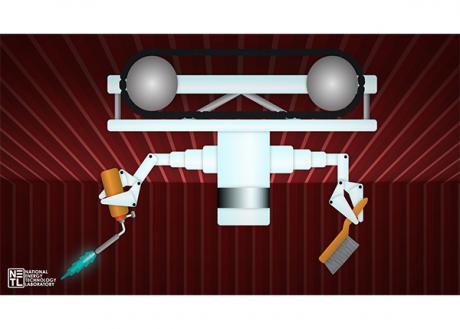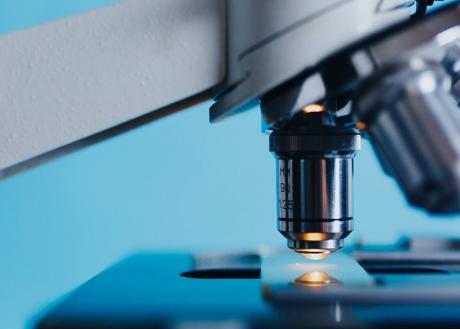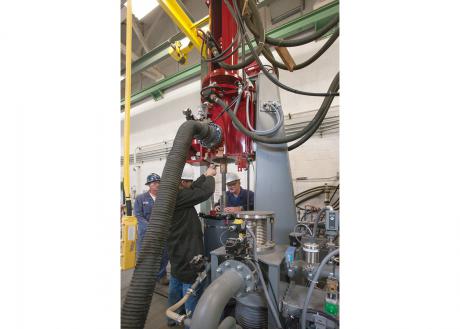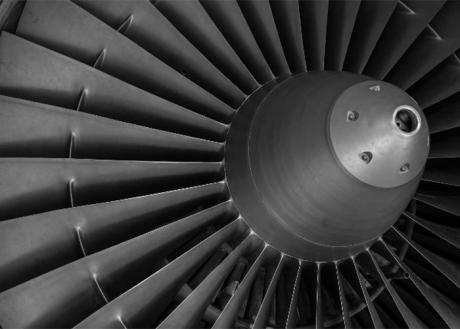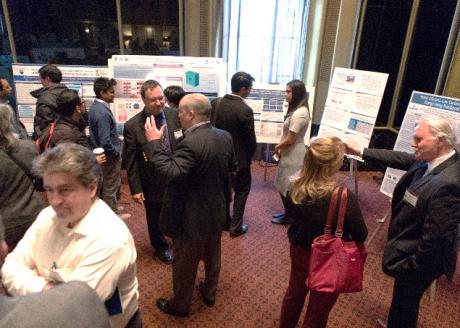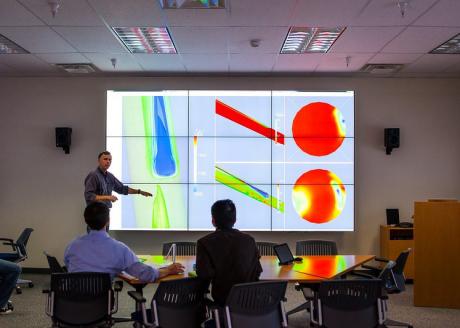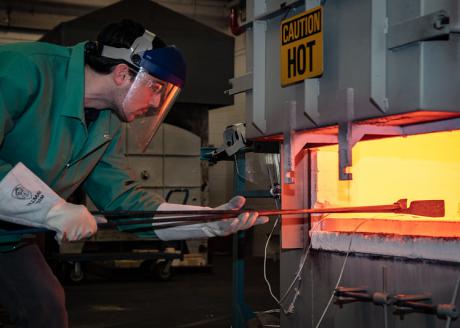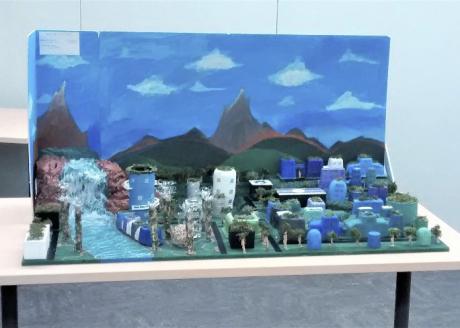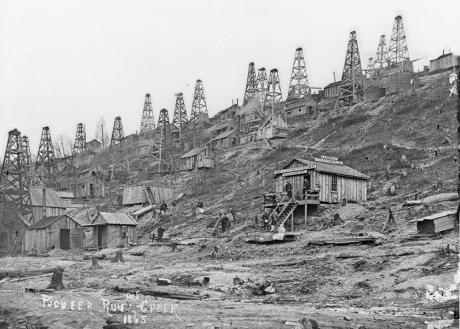NETL is partnering with the Colorado School of Mines (CSM) to develop artificial intelligence (AI)-enabled robots capable of evaluating and repairing power plant boilers, ensuring safer and more affordable energy production.
Boilers are one of the most important components of a power plant, as they are responsible for superheating water to create the steam that drives energy-producing turbines. However, it is difficult for humans to perform critical inspection and repair of these components.
As the world enters a new decade, change is on the horizon — especially in science, technology, engineering and math (STEM).
According to Forbes, women in the U.S. currently earn the majority of bachelor’s degrees; however, they are underrepresented in fields such as computer science, engineering and mathematics. Additionally, women who earn science and engineering degrees often do not go on to careers in those paths.
NETL will share its expertise and research in materials sciences at The Minerals, Metals, and Materials Society’s (TMS) 2020 Annual Meeting and Exhibition Feb. 23-27 in San Diego.
Lab representatives will join more than 4,000 engineers, scientists, business leaders, students and other professionals in the minerals, metals, and materials fields from 70 nations for a week of comprehensive, cross-disciplinary exchange of technical knowledge.
NETL researchers leverage the Lab’s world-class capabilities and facilities each day to pursue innovative science and technology (S&T) advances that contribute to technological solutions for America’s energy challenges. The Lab recently celebrated more than 30 notable 2019 S&T accomplishments with an interactive poster session focused on key research priorities that promote safe, reliable and affordable energy nationwide.
NETL welcomed Congressional guests and some of its university partners to the Feb. 20 event at the Pittsburgh site.
A new NETL report and case study released today shows that additional natural gas pipeline capacity and baseload generation units—such as coal and nuclear generation—are critical to providing reliable and affordable electricity during extreme weather events. Both are vitally important to meeting U.S. energy needs as more intermittent electricity sources, such as wind and solar, come onto the U.S. electricity grid.
Many of the nation’s leading scientists and engineers will present new energy technologies at the NETL-hosted Spring Fossil Energy R&D Project Review Meeting Tuesday, April 21, through Thursday, April 23, at the Omni William Penn Hotel in Pittsburgh. The meeting also is expected to attract representatives from electric utilities, as well as research universities and private industries who are interested in partnering with NETL on current and future projects.
With access to some of the world’s most advanced and powerful computers, NETL uses them to solve some of the world’s most complex energy and advanced manufacturing problems, which will be the subject of the Lab’s upcoming Regional Workforce Initiative (RWFI) Energy 101 webinar series.
For NETL researchers like Madison Wenzlick, the field of data analytics holds the key to unlocking the development of alloys needed to operate the next generation of U.S. power plants and keep Americans supplied with abundant, affordable electricity.
However, as Wenzlick and her colleagues explain in their recently published article, the availability of high-quality data to design advanced alloys, which are needed to manufacture stronger, heat-resistant power plant components, is limited.
The Lab’s K-12 STEM Education & Outreach team assisted several events and led site tours of NETL-Morgantown throughout the month of January. The team also attended events surrounding the integration of technology into education in order to understand how the process of learning will change in an increasingly technology-dependent world.
NETL has developed an easy-to-use online story map that explores how northwestern Pennsylvania became the birthplace of the modern petroleum industry and the efforts taken by Laboratory scientists to address the ongoing environmental issues from the region’s oil boom more than 150 years ago.





